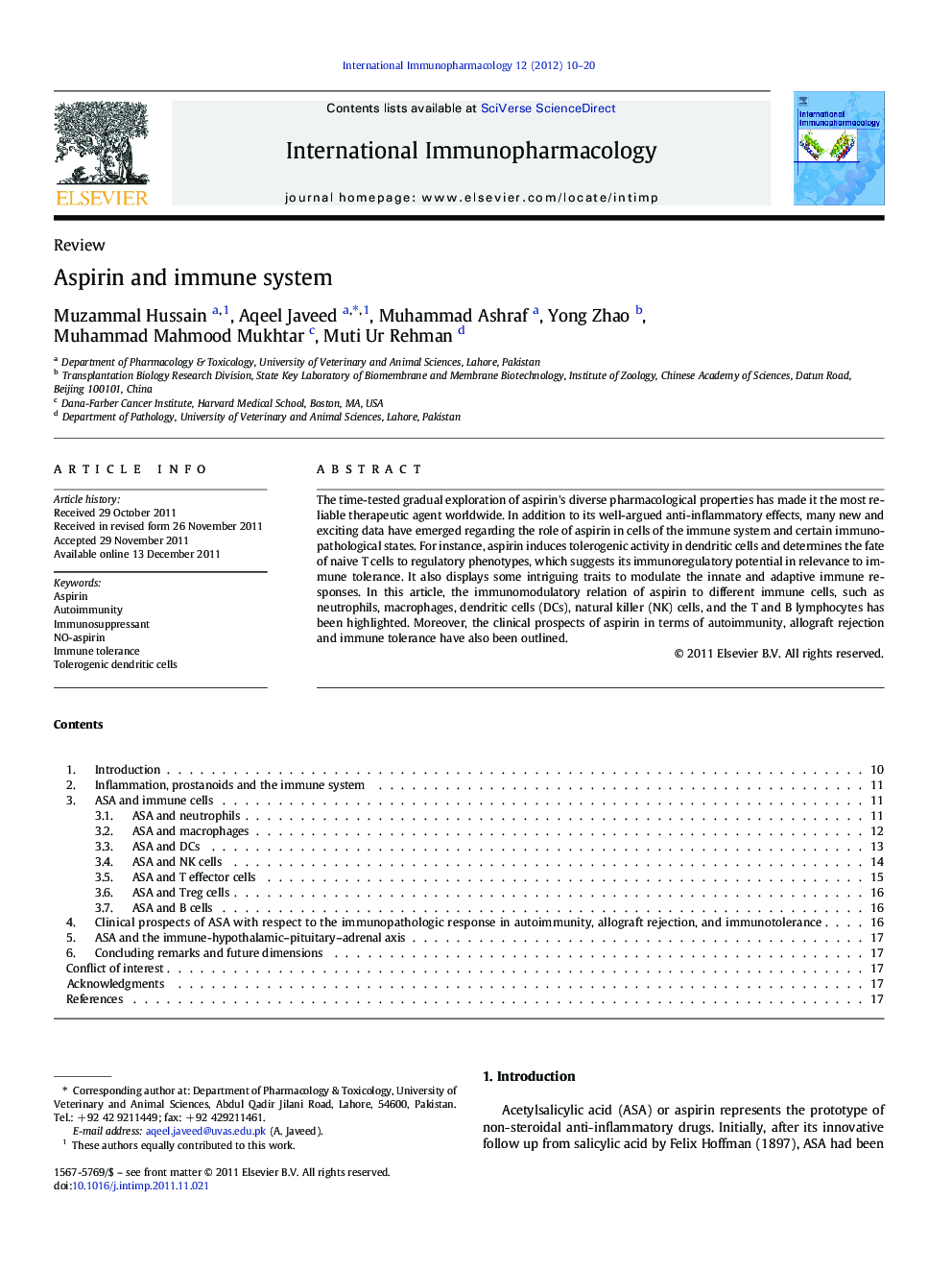| Article ID | Journal | Published Year | Pages | File Type |
|---|---|---|---|---|
| 2540970 | International Immunopharmacology | 2012 | 11 Pages |
The time-tested gradual exploration of aspirin's diverse pharmacological properties has made it the most reliable therapeutic agent worldwide. In addition to its well-argued anti-inflammatory effects, many new and exciting data have emerged regarding the role of aspirin in cells of the immune system and certain immunopathological states. For instance, aspirin induces tolerogenic activity in dendritic cells and determines the fate of naive T cells to regulatory phenotypes, which suggests its immunoregulatory potential in relevance to immune tolerance. It also displays some intriguing traits to modulate the innate and adaptive immune responses. In this article, the immunomodulatory relation of aspirin to different immune cells, such as neutrophils, macrophages, dendritic cells (DCs), natural killer (NK) cells, and the T and B lymphocytes has been highlighted. Moreover, the clinical prospects of aspirin in terms of autoimmunity, allograft rejection and immune tolerance have also been outlined.
► ASA and immune cells. ► Clinical prospects of ASA with respect to the immunopathologic response in autoimmunity. ► Clinical prospects of ASA with respect to the immunopathologic response in allograft rejection, and immunotolerance.
